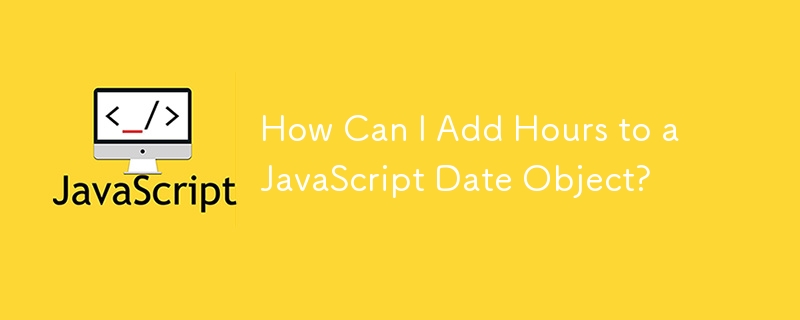

While the JavaScript Date object lacks an add method, it's possible to create one with custom functionality.
To add hours to a Date, follow these steps:
Date.prototype.addHours = function(h) {
this.setTime(this.getTime() + (h*60*60*1000));
return this;
}const now = new Date(); const fourHoursLater = now.addHours(4); // 4 hours added to current date
The above is the detailed content of How Can I Add Hours to a JavaScript Date Object?. For more information, please follow other related articles on the PHP Chinese website!
 A complete list of commonly used public dns
A complete list of commonly used public dns
 python comment shortcut keys
python comment shortcut keys
 What are the differences between hibernate and mybatis
What are the differences between hibernate and mybatis
 How to use left join
How to use left join
 vcruntime140.dll cannot be found and code execution cannot continue
vcruntime140.dll cannot be found and code execution cannot continue
 How to insert page numbers in ppt
How to insert page numbers in ppt
 How to find the median of an array in php
How to find the median of an array in php
 How to solve the problem that Apple cannot download more than 200 files
How to solve the problem that Apple cannot download more than 200 files




